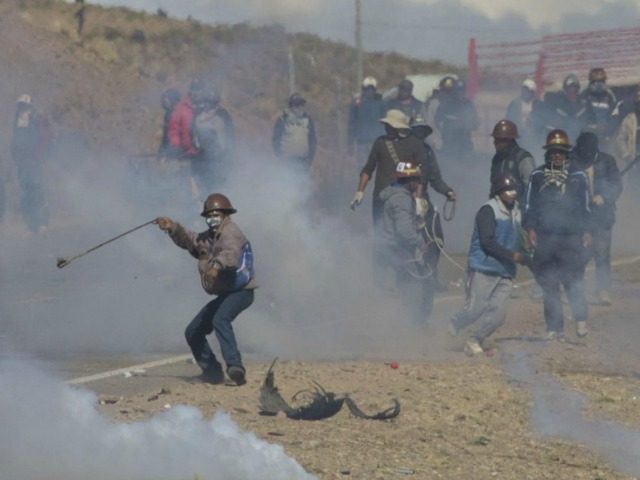A deputy government minister was abducted and beaten to death by striking miners as he attempted to defuse a tense conflict over mining laws in Bolivia.
Bolivian Minister Carlos Romero referred to the murder of Deputy Minister of the Interior Rodolfo Illanes as a “cowardly and brutal killing.”
Defense Minister Reymi Ferreira told Red Uno television, in a broken voice, that Illanes was “savagely beaten” to death by the striking miners.
The Associated Press (AP) reports, “The strike has turned violent recently with two protesters being killed and riot police failing to clear a highway in a western part of the mining-dependent Andean nation.”
The AP also states, “Illanes had gone to Panduro, a town 80 miles (130 kilometers) south of the La Paz, where the strikers have blockaded a highway since Monday, to open a dialogue. Thousands of passengers and vehicles are stranded on roads blocked by the strikers.”
Among other things, the miners are demanding the right to associate with private companies, which is banned by law.
The AP notes:
The fatal beating follows the killings of two protesters in clashes with police, deaths that likely escalated tensions in the strike.
….
Officials say he was taken hostage by the miners on Thursday morning. At midday, Illanes said on his Twitter account: “My health is fine, my family can be calm.” There are reports that he had heart problems.
The body of the deputy minister was recovered by Bolivian government authorities Friday, reports Infobae.
According to the Argentine news outlet, “The body arrived in [the Bolivian capital] La Paz in an ambulance escorted by police, and is now in a private clinic where it is undergoing an autopsy.”
An initial analysis of the body reportedly revealed that Illanes suffered several blows to the head.
Hector Arce, Bolivia’s attorney general, told reporters that the deputy minister was a “good man” who attempted to find a solution to the bitter conflict over mining laws.
Bolivia’s informal or artisan miners number about 100,000 and work in self-managed cooperatives. They want to be able to associate with private companies, which is prohibited. The government argues that if they associate with multinational companies they would cease to be cooperatives.The National Federation of Mining Cooperatives of Bolivia, once strong allies of President Evo Morales, went on an indefinite protest after negotiations over the mining legislation failed.

COMMENTS
Please let us know if you're having issues with commenting.